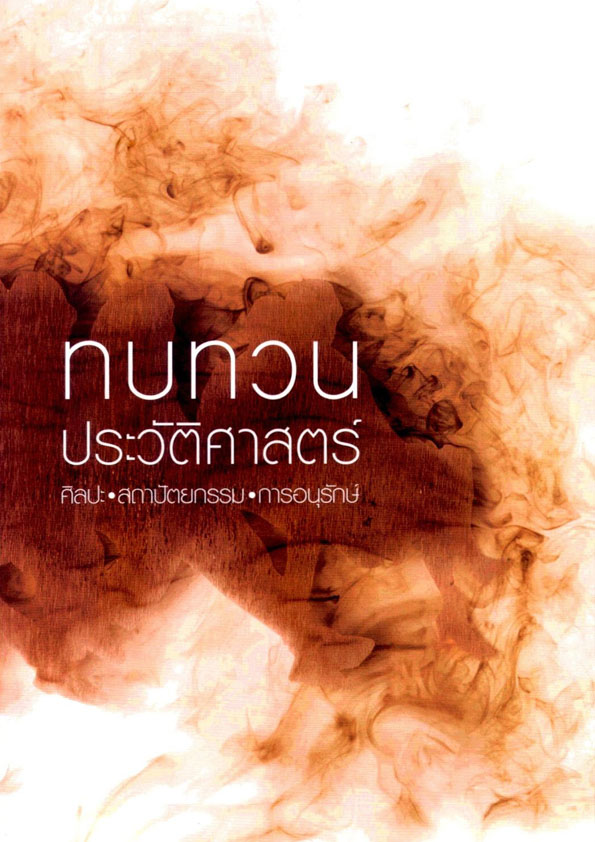โลกทัศน์ลาวโซ่งในบริบทใหม่ : ที่ว่างที่แปรเปลี่ยน ประเพณีที่เลือนหาย The Vision of Lao Song in a New Context : Space Adaptation and Tradition Disappearance
Main Article Content
Abstract
บทคัดย่อ
งานวิจัยนี้มีวัตถุประสงค์มุ่งเน้นทำความเข้าใจและค้นคว้าความสัมพันธ์ของการใช้ที่ว่างที่เกี่ยวข้องกับประเพณีของลาวโซ่ง ตลอดจนการเปลี่ยนแปลงรูปแบบการใช้ที่ว่างในภูมิทัศน์วัฒนธรรมท้องถิ่นที่มีผลสืบเนื่องจากการปรับตัวในบริบทใหม่ โดยมีขอบเขตการศึกษาเฉพาะชุมชนลาวโซ่งหรือไททรงดำ ในเขตอำเภอเขาย้อย จังหวัดเพชรบุรี ซึ่งปรากฏหลักฐานอ้างอิงว่าเป็นชุมชนของชาวลาวโซ่งที่ถูกกวาดต้อนและอพยพมาตั้งรกรากเป็นแหล่งแรกในประเทศไทย และเป็นชุมชนที่มีอายุเก่าแก่ยาวนานมากที่สุด ด้วยการศึกษาภาคเอกสาร การสำรวจภาคสนาม และการสัมภาษณ์ในเชิงลึก ตลอดจนการวิเคราะห์ลักษณะแนวโน้มหรือความเป็นไปได้จากการปรับตัวในบริบทใหม่ โดยใช้ข้อมูลอ้างอิงบางส่วนจากชุมชนต้นกำเนิดในประเทศเวียดนาม
จากการศึกษาเบื้องต้นพบว่า การเปลี่ยนแปลงรูปแบบของการปลูกสร้างเรือน และประโยชน์ใช้สอยที่เพิ่มมากขึ้นของที่ว่างใต้ถุนเรือน ลานบ้าน เพื่อรองรับกิจกรรมในการดำรงชีวิต รวมถึงรูปแบบการดำรงชีวิตในสังคมชนบทสมัยใหม่ที่มีความเจริญในด้านต่างๆ มากยิ่งขึ้น ก็ยังผลให้ประเพณีและพิธีกรรมส่วนหนึ่งที่อาศัยที่ว่างดังกล่าวนั้น โดยเฉพาะประเพณีเกี่ยวกับการอยู่ดีกินดี และประเพณีการเลือกคู่ครอง ได้ลดความสำคัญลงและเริ่มเลือนหายไป ผลการศึกษาเบื้องต้นดังกล่าว สามารถนำไปเป็นเครื่องมือในการค้นหารูปแบบการใช้ที่ว่างในลักษณะอื่นๆ ที่ได้รับผลกระทบจากการปรับตัวของลาวโซ่งในบริบทใหม่ได้
Abstract
The purpose of this research is to understand the relationship of the utilization of space associated with the tradition of Lao Song and its changing patterns in the local or folk cultural landscape as a result of adaptation to a new context. The scope of study focuses on Lao Song or Tai Dam community of Khao Yoi district in Phetchaburi province, which is believed to be the first settlement of the Lao Song people in Thailand. The data was collected from document research, field survey and in-depth interviews, including an analysis of the tendency and the possibility of adaptation to a new context, using partial information from the original community in Vietnam.
The preliminary study discovered changing patterns of house building and increased functionality of the ground floor and courtyard space of a house to accommodate additional activities. New lifestyles in the modern rural society with growing development and income lead to the decline of customs and rituals traditionally organized in such spaces, including traditions related to well-being and mate selection customs. The results of this preliminary study can be used as a tool to search for patterns of spatial utilization in other manners that are affected by the adaptation of the Lao Song ethnic group in the new context.

